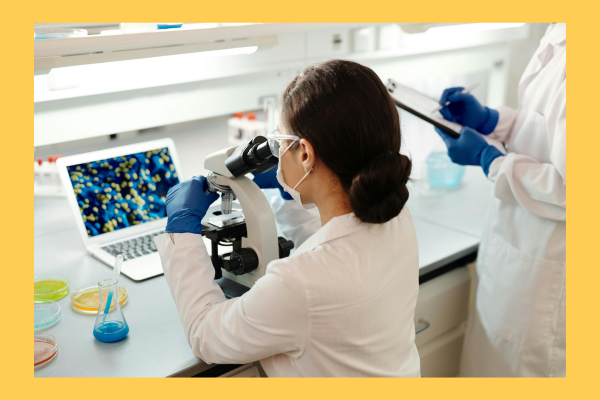Introduction
The Bachelor in Medical Laboratory Technology (BMLT) program is a specialized 3 to 4-year undergraduate degree designed to equip students with comprehensive knowledge and technical expertise in laboratory diagnostics, laboratory management, and clinical interpretation of medical test results. This program combines theoretical instruction with extensive practical training to prepare students for critical roles in modern healthcare systems. Graduates assist in the diagnosis, treatment, and prevention of diseases, making them integral to the medical field.
Medical laboratory technologists act as a vital link between physicians and patients, delivering precise diagnostic data that informs treatment decisions. The curriculum is structured around evidence-based practices, laboratory methodologies, and quality control processes, ensuring students are well-prepared to operate within medical laboratories, diagnostic centers, research institutions, and public health organizations. With a focus on the latest technological advancements, the program fosters adaptability in an ever-evolving field.

Program Structure
Duration
The BMLT program typically spans 3 to 4 years, including academic coursework and hands-on clinical internships. The internship phase provides students with real-world exposure to laboratory operations, advanced diagnostic procedures, and quality assurance techniques, enhancing their problem-solving skills and technical expertise.
Eligibility Criteria
Prospective students must meet the following criteria for admission:
- Completion of 10+2 education with a focus on Physics, Chemistry, and Biology.
- Achievement of minimum qualifying marks as specified by the institution.
- Passing entrance exams or personal interviews, if required by the institution.
Some institutions may offer financial assistance or reserved seats to support meritorious and underprivileged candidates, promoting inclusive access to education.
Mode of Study
While the program is primarily delivered as a full-time course, select institutions offer part-time or distance learning options to accommodate working professionals. Modern teaching approaches, including online classes and virtual labs, may supplement traditional classroom instruction.
Core Curriculum
The curriculum integrates fundamental sciences with applied laboratory practices to ensure students develop both theoretical understanding and technical proficiency. Core subjects include:
- Human Anatomy and Physiology – Understanding the structure and function of the human body.
- Clinical Biochemistry – Analyzing bodily fluids to detect biochemical imbalances.
- Hematology – Studying blood cells and identifying blood disorders.
- Microbiology and Immunology – Examining microorganisms and immune responses to infections.
- Pathology – Investigating tissue abnormalities for disease diagnosis.
- Molecular Biology and Genetics – Exploring DNA, RNA, and genetic testing techniques.
- Laboratory Instrumentation and Techniques – Operating and maintaining diagnostic equipment.
- Blood Banking and Transfusion Science – Ensuring safe blood collection, storage, and transfusion.
- Clinical Pathology and Cytology – Analyzing body fluids and cells for abnormalities.
- Medical Ethics and Laboratory Management – Promoting ethical practices and efficient administration.
- Research Methodology and Biostatistics – Using statistical tools for data analysis and research.
Specialized courses may include:
- Histopathology – Examining tissue samples for abnormalities.
- Virology and Parasitology – Studying viruses and parasites affecting human health.
- Toxicology – Analyzing the impact of toxins on biological systems.
- Quality Control and Assurance – Maintaining accuracy and consistency in lab results.
Skill Development
The program emphasizes a diverse skill set to prepare graduates for the challenges of laboratory diagnostics and research. Key skills include:
- Analytical Techniques – Applying laboratory protocols for accurate testing.
- Technical Expertise – Using advanced diagnostic tools and automated systems.
- Attention to Detail – Ensuring precision and minimizing errors in test results.
- Problem-Solving Abilities – Troubleshooting issues related to equipment and data analysis.
- Data Interpretation – Extracting clinical insights from test results.
- Communication and Collaboration – Coordinating effectively with healthcare teams and patients.
- Ethical Conduct and Compliance – Adhering to legal standards and professional ethics.
- Research and Development – Innovating diagnostic techniques and contributing to scientific advancements.
Career Opportunities
Graduates of the BMLT program can explore diverse career paths in diagnostics, research, and healthcare management. Key positions include:
Job Roles
- Medical Laboratory Technician – Conducting diagnostic tests and preparing reports.
- Pathology Technician – Analyzing tissues and fluids to detect diseases.
- Biochemistry Technician – Performing biochemical tests to diagnose conditions.
- Microbiology Technician – Identifying microorganisms and studying infections.
- Blood Bank Technician – Managing blood collection, storage, and transfusions.
- Cytology Technician – Examining cells for abnormalities and early signs of cancer.
- Laboratory Supervisor or Manager – Overseeing laboratory operations and maintaining standards.
- Laboratory Superintendent – To overall management of laboratory.
- Research Assistant – Supporting clinical trials and scientific studies.
- Academic Instructor – Teaching laboratory science and mentoring students.
- Pharmaceutical Analyst – Conducting drug quality testing and analysis.
Work Environments
Graduates can find employment in:
- Hospitals and Clinics – Providing diagnostic and monitoring services.
- Diagnostic Laboratories – Conducting specialized testing and analysis.
- Research Institutions – Contributing to scientific studies and innovations.
- Blood Banks – Managing blood donation and transfusion programs.
- Public Health Agencies – Supporting disease prevention and health promotion initiatives.
- Pharmaceutical Companies – Performing drug quality testing and product development.
- Forensic Laboratories – Analyzing evidence in criminal investigations.
Conclusion
The Bachelor in Medical Laboratory Technology (BMLT) program is a vital qualification for those seeking to make meaningful contributions to healthcare diagnostics and research. It delivers a balanced education, blending scientific theory with hands-on practice, to prepare students for the dynamic field of laboratory science.
With the continued growth of diagnostic technologies and personalized medicine, graduates have abundant opportunities for specialization and career advancement. Whether working in clinical environments, research labs, or public health programs, BMLT graduates play a key role in enhancing patient care and advancing medical science globally.

